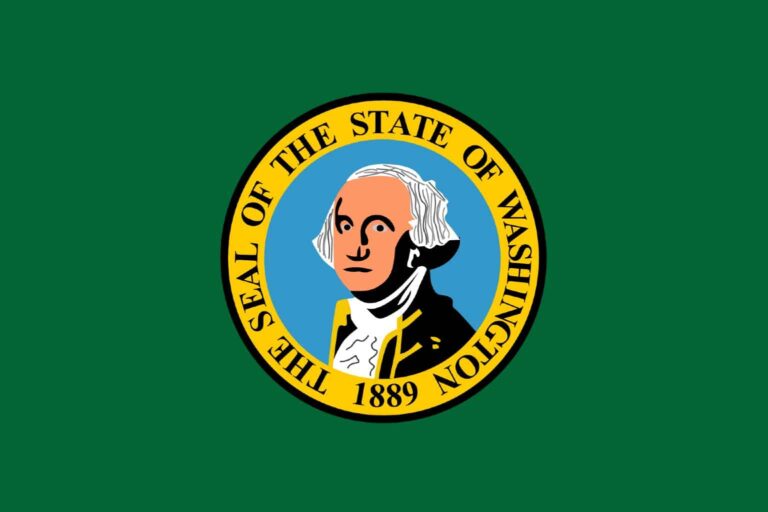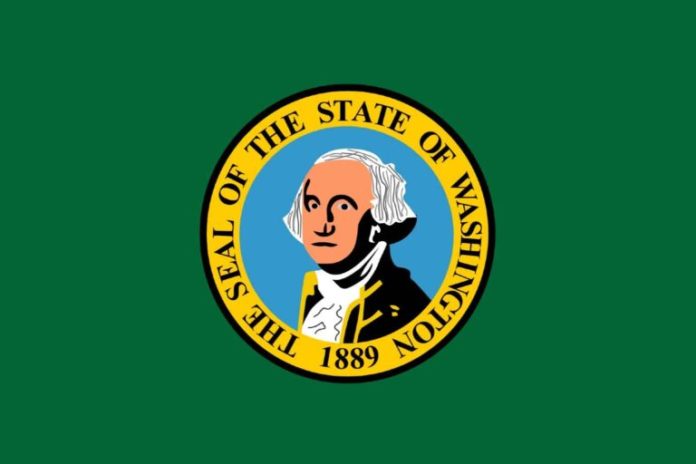If you own land or property, rent it, lease it or have any other legal entitlement to it you will definitely want to understand the trespassing laws in your state.

Only by understanding these laws will you know where your rights begin and end concerning a given piece of real estate, and just as importantly know what you can do about people who decide to trespass on it.
Though the trespassing laws are largely similar wherever you go, there is still plenty of variation in each of the 50 states.
Looking at Washington State, for instance, you’ll find that the trespassing laws are clearly worded, easily understood, and straightforward.
There are signage requirements for posting certain kinds of property against trespassing if specific verbal communication with an individual has not been made, but you see laws like that in many places.
Keep reading and we will tell you everything you need to know about Washington’s trespassing laws.
Washington Trespassing Law Overview
- All kinds of trespassing in Washington are misdemeanor crimes.
- Fencing is not required for protecting undeveloped or unused land so long as signage is posted or verbal communication has taken place with the suspected trespasser.
- Serious charges of criminal trespassing may result in a $1,000 fine and up to a year in jail.
What Constitutes Trespassing in Washington?
Washington State broadly defines trespassing as entering or remaining unlawfully in or upon the premises of another when not licensed, invited, or otherwise legally privileged to do so.
Trespassing is also remaining and refusing to leave premises when told to do so by the property owner or the property owner’s agent, or after permission to remain has been revoked.
As always, it is in your best interest to read thoroughly a given state’s definition of trespassing and all other related terms as they are used throughout the state statutes.
Yes, most of the time they will have a common and easily understood meaning, but sometimes there is an important context you’ll need to know to make sense of the law and understand it.
You can read Washington’s definition of trespassing below in section 9A.52.010
9A.52.010 Definitions.
The following definitions apply in this chapter:
(…)(2) “Enters or remains unlawfully.” A person “enters or remains unlawfully” in or upon premises when he or she is not then licensed, invited, or otherwise privileged to so enter or remain.A license or privilege to enter or remain in a building which is only partly open to the public is not a license or privilege to enter or remain in that part of a building which is not open to the public. A person who enters or remains upon unimproved and apparently unused land, which is neither fenced nor otherwise enclosed in a manner designed to exclude intruders, does so with license and privilege unless notice against trespass is personally communicated to him or her by the owner of the land or some other authorized person, or unless notice is given by posting in a conspicuous manner. Land that is used for commercial aquaculture or for growing an agricultural crop or crops, other than timber, is not unimproved and apparently unused land if a crop or any other sign of cultivation is clearly visible or if notice is given by posting in a conspicuous manner. (…)
Does Washington Require “No Trespassing” Signs?
Yes, assuming that the property owner or property owner’s agent has not made direct contact with the trespasser or the suspected trespasser and notified them that they may not trespass.
As usual, posting signs around the perimeter of your property and highly visible locations and also at every likely entrance to the property is considered sufficient notice against trespassing.
Posting is important because it will eliminate some affirmative defenses that a trespasser might use in court and also escalate the seriousness of the trespassing charge.
Is Fencing Required to Protect Property?
No, but enclosing the property with a fence, wall or other barrier designed to prevent ingress onto the property also effectively counts as a notice against trespassing.
Depending on the size of your property, fencing might be an extremely pricey option so you can always go with signs.
What Other Marks Indicate “No Trespassing”?
None. Unlike some other states that have what is commonly called “purple paint” laws on the books, Washington does not allow the use of any sort of paint markings to post a property against trespassers.
Note that just because an individual might well know what such markings on trees or posts mean, they do not have the backing of law in the state, which means they should only be used for convenience purposes and not for protecting property.
Can Solicitors Ignore “No Trespassing” Signs?
Technically no, but bold ones might do so in a suburban neighborhood or in a metropolitan area.
This is because Washington has affirmative defenses against charges of trespassing found in section 9A.52.090.
One of those is if the person trespassing reasonably believed that the owner of the premises or the owner’s agent would have given them permission to enter or remain on the property.
Considering that a solicitor is walking up to your front door to knock and ask you for some of your time, this can be easily construed as seeking out the property owner for permission. We’ll talk more about affirmative defenses to charges of trespassing in Washington in the last section.
Can Trespassing Result in Arrest in Washington?
Absolutely. Trespassing is a misdemeanor crime in Washington, but that does not mean it is some simple violation. Trespassing can result in a lengthy jail term and a substantial fine.
As noted in section 98.5 2.070, criminal trespass in the first degree is a gross misdemeanor.
As of press time, a gross misdemeanor in Washington can entail a $1,000 fine and a year in jail. Serious stuff!
Read it for yourself below:
9A.52.070 Criminal trespass in the first degree.(1) A person is guilty of criminal trespass in the first degree if he or she knowingly enters or remains unlawfully in a building.(2) Criminal trespass in the first degree is a gross misdemeanor.…9A.52.080 Criminal trespass in the second degree.(1) A person is guilty of criminal trespass in the second degree if he or she knowingly enters or remains unlawfully in or upon premises of another under circumstances not constituting criminal trespass in the first degree.(2) Criminal trespass in the second degree is a misdemeanor.
Can You Take Someone to Court for Trespassing?
Yes, definitely. Anyone who flagrantly trespasses on your land or in a structure that you own can be dragged to court over it.
This is especially true if they are a repeat offender, or trespassing to commit any other crime, or if they caused damage to land or other property while doing so.
Special Instances of Trespassing in Washington
There are a few special statutes related to trespassing in Washington, but perhaps the most important for the average person are the affirmative defenses against charges of trespassing.
To clarify, an affirmative defense is basically one that the accused will have to use in court; it isn’t a get-out-of-jail-free card and it won’t necessarily clear them at the scene.
Even so, if you care to read through the text of 9A.52.090 below you’ll see that trespassing in an abandoned building might not be trespassing after all.
As mentioned above a person who can articulate a genuine belief that the owner of the property would have granted them permission to be there might likewise escape being charged:
9A.52.090 Criminal trespass—Defenses.In any prosecution under RCW 9A.52.070 and 9A.52.080, it is a defense that:(1) A building involved in an offense under RCW 9A.52.070 was abandoned; or(2) The premises were at the time open to members of the public and the actor complied with all lawful conditions imposed on access to or remaining in the premises; or(3) The actor reasonably believed that the owner of the premises, or other person empowered to license access thereto, would have licensed him or her to enter or remain; or(4) The actor was attempting to serve legal process which includes any document required or allowed to be served upon persons or property, by any statute, rule, ordinance, regulation, or court order, excluding delivery by the mails of the United States. This defense applies only if the actor did not enter into a private residence or other building not open to the public and the entry onto the premises was reasonable and necessary for service of the legal process.
 Like what you read?
Like what you read?
Then you’re gonna love my free PDF, 20 common survival items, 20 uncommon survival uses for each. That’s 400 total uses for these dirt-cheap little items!
Just enter your primary e-mail below to get your link:
We will not spam you.


